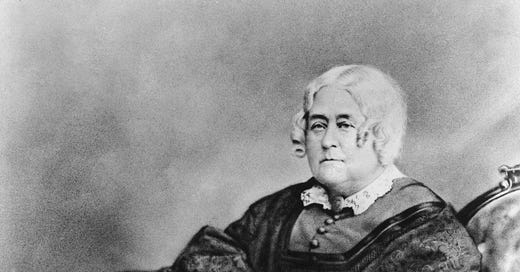Robots, Transcendentalism, and Practical History
Episode Spotlights, an NBN Special Series, and Fast Five with Randall Fuller
In this week’s newsletter…
Episode Spotlight: Robots
Are you curious about ancient musings on robots? Or do you wonder how robots will impact the future? Jump into these three episodes as a historian, sociologist, and science writer explore the possibilities of robotics in mythology, labor, and social life.
Listen to historian of ancient science Adrienne Mayor discuss her book Gods and Robots: Myths, Machines, and Ancient Dreams of Technology. She examines robots and mythic automata in mythology and shows how the Ancient Greeks explored the possibilities and implications of artificial life in tales like the Argonauts, Daedalus, and Pandora. Tune in to hear Mayor discuss her view that ancient Alexandria was the original Silicon Valley.
In our recent NBN Book of the Day, Waiting for Robots: The Hired Hands of Automation, sociologist Antonio A. Casilli asks us to move beyond the simplistic notion that machines are intelligent and autonomous. To do so, he demonstrates how most automation requires human labor. In this compelling book he shows how technology exploits humans and challenges the future of work.
Check out science writer Eve Harold’s exploration of how socially interactive robots will transform social life in her book, Robots and the People Who Love Them: Holding on to Our Humanity in an Age of Social Robots. She discusses the ways that humans could change, and remain the same as we increasingly engage with social robots. Harold draws on the latest developments in robotics and artificial intelligence to explore what they mean for our future.
Fast Five: Transcendentalist Texts
This week Randall Fuller shares five recommendations for lesser-known Transcendentalist texts. Randall is the Herman Melville Distinguished Professor of 19th Century American Literature and Director of Graduate Studies at the University of Kansas and the author of Bright Circle: Five Remarkable Women in the Age of Transcendentalism. Below are his recommendations for books by some of the authors he profiles:
1. Mary Moody Emerson’s “Almanacks.” Spanning decades of her life as well as thousands of handwritten pages, Mary Moody’s Almanacks are one the richest sources of proto-transcendentalist thought available. The highlights from the work of this formative influence on the thought and writing of her nephew Ralph Waldo Emerson are available at The Almanacks of Mary Moody Emerson: A Scholarly Digital Edition.
2. Elizabeth Palmer Peabody, Record of a School. Published the year before Ralph Waldo Emerson’s Nature, this account of Bronson Alcott’s experimental Temple School, written by an instructor who transcribed Alcott’s socratic method and was herself a formidable intellectual, was a harbinger of things to come.
3. Elizabeth Palmer Peabody, “A Margaret Fuller Conversation on Gender (1840)’, which, like many of the works mentioned here, can be found in Lawrence Buell’s essential The American Transcendentalists: Essential Writings, gives a taste of the most important talk in nineteenth-century American history: the conversation group led by Margaret Fuller (held in Peabody’s bookstore) and forming the foundation of the nation’s feminist movement.
4. Lydia Jackson Emerson’s “Transcendental Bible.” Although not particularly easy to come by—your best best is Buell—the “Transcendental Bible” is well worth seeking out for its incisive, satirical view of the movement’s shortcomings by someone who, as Emerson’s second wife, knew all too well of which she wrote.
5. Louisa May Alcott’s Transcendental Wild Oats, published in 1873, is an alternately affectionate and sarcastic recollection of growing up in one of the most transcendentalist families in America. Alcott’s father, the improvident Bronson, led the family down many rarefied paths that ultimately placed the burden of earning a living on the Alcott women.
Listen to our interview with Randall about Bright Circle:
Special Series: Practical History
This NBN Special Series explores the practical uses of historical knowledge in all aspects of life, particularly in business and tech. Practical History host Patryk Babiracki is an historian, researcher and writer who promotes #AppliedHistory: using historical concepts, frameworks, and methodologies to solve real-world organizational problems. Give this Special Series a listen to learn more about how historical thinking is valuable to careers in data science, journalism, entrepreneurship and more! Check out the full list of episodes on our website.





